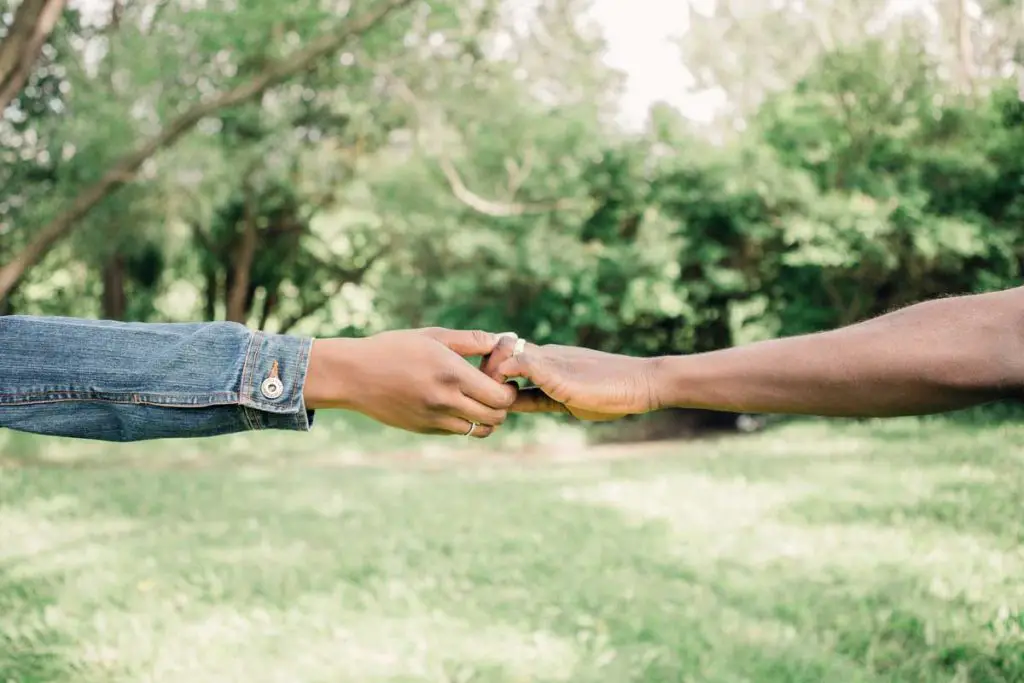Giving an apology when you did nothing wrong can be difficult. You may feel like you are “giving in” or “being weak” if you apologize. However, sometimes an apology is the best way to resolve a situation. There are times when an apology is necessary, even if you don’t believe you did anything wrong.

When we think about who is “right” and who is “wrong,” we often think in absolutes. However, the world is rarely black and white. There are usually many shades of gray.
In some cases, things can be blurry. It can be difficult to tell who is right and who is wrong.
In other cases, there may not be a clear “right” or “wrong.” Instead, there may be different perspectives. For example, imagine that you are trying to parallel park.
You think you are doing a great job. However, the person behind you thinks you are taking too long and blocking traffic.
When to apologize when you did nothing wrong
If you say something that unintentionally hurts someone’s feelings, an apology may help to mend the relationship. There are many benefits to apologizing.
Even if you believe the other person is wrong, an apology can diffuse a situation and help to reduce tension.
Sometimes, our relationship with someone is more important than being right. However, relationships take work. If an apology will help to improve or save a relationship, it may be worth considering, even if you don’t believe you did anything wrong.
Keeping the peace may be more important than winning an argument.
If you are in a position of authority, an apology may also be necessary if something goes wrong, even if it wasn’t your fault.
For example, if you are a manager and an employee makes a mistake, you may need to apologize to the customer on behalf of the company.
Other times, we may make mistakes, even if we don’t realize it. These mistakes can offend or inconvenience people. In these cases, an apology can help to smooth things over and show that we’re willing to take responsibility for our actions.
If you are unsure whether or not an apology is needed, err on the side of caution and apologize.
Whether you’re arguing with a spouse or a good friend, a sincere apology can go a long way, even if you don’t think you did anything wrong.

How to give an apology when you did nothing wrong
Acknowledge that the other person is hurt or offended
Even if you don’t think you did anything wrong, it is important to show that you understand the other person’s perspective. If you can see why the other person is hurt or offended, it will be easier to apologize. It is not always easy to see things from another point of view.
Take time to listen (without interruption) to how the other person feels. Empathize with the other person and try to put yourself in the other person’s shoes. This can be quite challenging, but it is an important skill to learn.
Be sincere
It is important to be sincere in your apology. This means that you should only apologize if you truly are sorry for what happened.
If you are not sorry, then an apology will not be genuine and will likely do more harm than good. If you feel as though you have done nothing wrong, this can be difficult to do.
However, try to see things from the other person’s perspective and understand why they are upset. For example, you may say “I’m sorry for how my words made you feel.”, “I’m sorry that my actions led to this result.”, or “I’m sorry that I hurt or offended you.”
Take responsibility
Even if you didn’t do anything wrong, it is important to take responsibility for what happened. This shows that you are willing to take ownership of the situation and that you are taking steps to make sure it doesn’t happen again.
Avoid making excuses
It is also important to avoid making excuses for what happened. This includes things like “I’m sorry, but it wasn’t my fault” or “I’m sorry, but I didn’t know any better.”
These excuses shift the blame away from you and onto someone or something else. There are better ways to phrase these apologies. For example, “I’m sorry for what happened. I will do my best to make sure it doesn’t happen again.”
Be specific
When you apologize, be specific about what you are apologizing for. This shows that you understand exactly what happened and why it was wrong. For example, “I’m sorry for bumping into you” is much more effective than “I’m sorry for what happened.”
Offer to make things right
In some cases, you may be able to offer to make things right. This could include apologizing in person, sending a handwritten note, or sending a gift.
If you are able to do this, it will show that you are willing to go the extra mile to make things right. You can even tell the other party how grateful you are for them.
Follow up
It is important to follow up after you apologize. This means keeping your word and making sure that you don’t do anything to repeat the offense.
For example, if you promised to send a handwritten note, make sure you do it. If you promised to stop doing something, make sure you do it.
Following up shows that you are sincere in your apology and that you are taking steps to change your behavior.
Move on
Once you have apologized, it is important to move on. This doesn’t mean forgetting what happened, but it does mean putting it in the past and focusing on the future.
Continuing to dwell on what happened will only make it harder to move on.

Example apologies:
- I’m sorry for what I said. I was out of line and I didn’t mean to hurt you.
- I’m sorry for how my actions led to this result. I’ll try to do better in the future.
- I’m sorry that I hurt or offended you. I’ll try to be more mindful in the future.
- I’m sorry for how I acted. I know it was wrong and I’m sorry.
- I’m sorry for what happened. I’ll do my best to make sure it doesn’t happen again.
- I’m sorry for offending you. I was speaking without thinking and I didn’t mean to hurt your feelings.
- I’m sorry for how my words made you feel.
- I’m sorry that my actions led to this result.
Giving an apology when you did nothing wrong can be difficult. You may feel as though you don’t need to apologize or that the other person is being overly sensitive.
However, it is important to remember that an apology shows you are committed to making things right. In the end, sometimes you have to ask, would you rather be right or would you rather be happy?